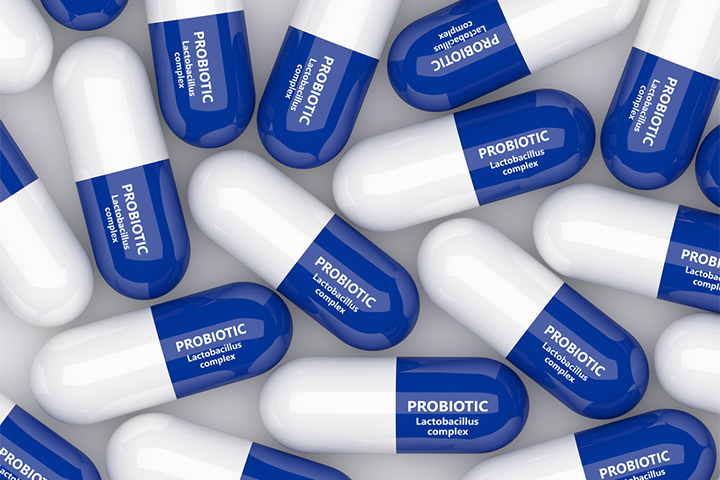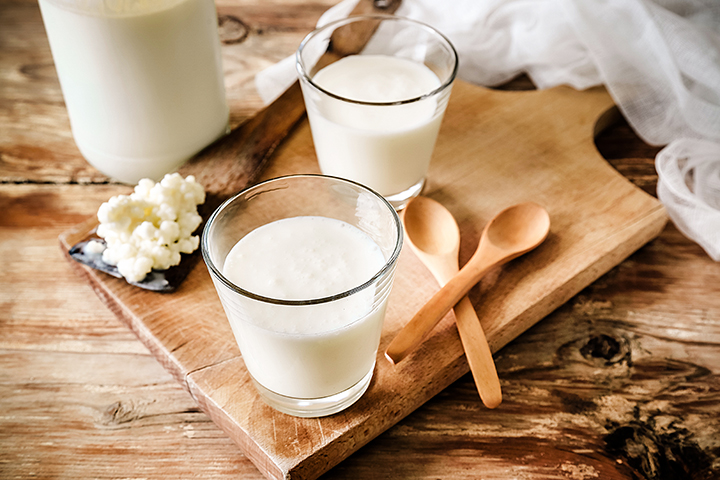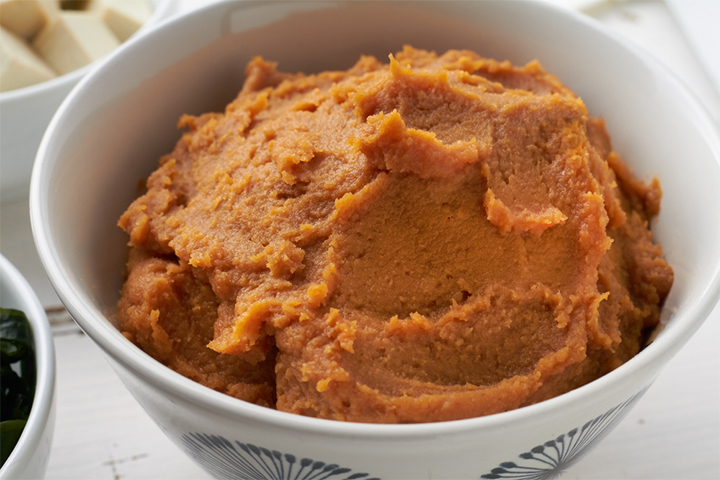Probiotics are living microorganisms similar to healthy bacteria normally present in the human gut. These microorganisms have several health benefits and therefore have become a popular dietary supplement in recent times. However, the health benefits of probiotics for breastfeeding mothers and their babies are yet to be explored and established. So, can breastfeeding mothers add probiotics to their regular diet? We have compiled information about the safety, facts, health benefits, side effects, and natural sources of probiotics for breastfeeding mothers. Read on to know more.
Are Probiotics Safe When Breastfeeding?
Probiotics are safe to take when breastfeeding. When used orally or as a vaginal suppository, they are generally well-tolerated and are considered safe (1). Research suggests that their persistent use could enhance the immunoprotectiveiXThe ability of a substance to boost the immune system and protect against diseases and infections potential of breast milk (2). However, you need to talk to a doctor or lactation expert before taking any nutritional supplements when breastfeeding.
Important Facts About Probiotics When Breastfeeding
- Human milk is a natural source of probiotics for infants. Research shows that human milk has 700 different types of bacteria, including probiotic strains such as Lactobacillus, Streptococcus, Staphylococcus, and Bifidobacterium (3).
- The intake of probiotic supplements by a mother can affect the probiotic composition of breast milk. However, they do not pass to an infant directly via breast milk and do not affect their gut microbiome (1) (4).
Laura Howells, an IBCLC from Albany, California, says, “Probiotics do not pass directly to your baby, but by colonizing your body with good bacteria, those will be passed to your baby in your milk. Breasts have a microbiomeiXThe collection of microorganisms (bacteria, viruses, fungi, etc.) that live on and within our bodies of their own to make this possible.”
- Probiotics are available in the form of dietary supplements and foods prepared by bacterial fermentation. Some commercially available probiotics products are broad-spectrum, i.e., these products have different probiotics in the same product.
- The most widely used probiotics are live bacteria such as Lactobacillus and Bifidobacterium. However, some strains of fungi are also probiotic, such as Saccharomyces boulardi, which is a type of yeast (5).
Possible Health Benefits of Probiotics When Breastfeeding
Consuming probiotics when breastfeeding can have several combined benefits for you and your baby.
Mutual Benefits
These benefits come to the mother and could also impact the infant health through breast milk.
- Digestive health:The probiotic use has proved effective in several gastrointestinal issues, such as antibiotic-associated diarrhea and inflammatory bowel disease, (6). Therefore, regular probiotics intake may help flourish the gut microbiome and keep the mother’s digestive system healthy. A robust GI tract ensures better absorption of food nutrients (7), and their optimum transfer to the baby through breast milk.
- Immunity: Probiotics have shown to impact the innate immunity of the host (8). Enhanced innate immunity plays a crucial role in managing or preventing autoimmuneiXConditions where the immune system mistakenly targets and harms healthy cells in the body, leading to inflammation and tissue damage conditions (9). Mothers who consume probiotics are likely to confer these advantages to their babies as well. For example, a study noted that maternal probiotic consumption had an immunomodulatoryiXRegulation of the activities in the immune system to enhance health and prevent illness effect on breast milk. It ultimately reduced the risk of atopic eczemaiXA skin condition that causes itching, redness, and dryness, often hereditary and manageable with proper treatment and self-care in the breastfed infants during the first two years of life (2).
Benefits For Mothers
- Urinary tract infections: Some studies note that the vaginal use of probiotics could mitigate the chances of urinary tract infections (UTIs), including those caused by yeasts (10). However, more research is needed to establish probiotics as a valid treatment for UTIs (11).
- Nausea: A few research studies have promoted the use of probiotics to manage and treat nausea caused by lower GI tract ailments (12).
- Mood and cognitive function: Research suggests that the regular use of probiotics might help improve mood and cognitive function by lowering stress and anxiety (13).
- Help lose weight and belly fat: Certain research studies show that probiotics can potentially help in losing weight and belly fat. They might reduce fat absorption in the small intestine or might make you feel full for longer, thus reducing food intake (14) (15).
- Lactose intolerance: Some strains of probiotic bacteria could improve lactose metabolism, thus helping mothers with lactose intolerance (16).
- Healthy heart:Probiotics are associated with enhanced heart health and probable prevention of coronary heart diseases. It reduces serum cholesterol levels by interfering with cholesterol absorption in the gut. Probiotics also display antihypertensive effects, which allows for blood pressure control (16).
- Inflammation: Various scientific research studies show that the regular use of probiotics has the potential to lower inflammation (17).
- Mastitis: Mastitis infection (inflammation of the breast due to bacterial infection that leads to pain and discomfort in mothers) has a bacterial origin, and it often involves streptococcus epidermis or staphylococcus aureus. Some studies report that probiotics may be effective in preventing the growth and proliferation of mastitis-causing bacteria in the breast tissues (18).
Possible Side Effects Of Probiotics While Breastfeeding
In the US, probiotics are sold as dietary supplements. They do not undergo the FDA’s stringent testing and approval process mandatory for the regular drugs. (19). Therefore, you need to be extra careful and cognizant of the likely side effects of probiotics (5) (20).
- Mild gastrointestinal issues: You may experience bloating, diarrhea, or stomach cramps initially when consuming probiotic supplements. If the problems persist, then switch to another probiotic or consult your doctor.
- Contamination: There have been cases where probiotic supplements were contaminated by potentially harmful fungi and bacteria. Therefore, only buy probiotic supplements made by trusted manufacturers and sold by authorized retailers.
- Infections: Probiotics might lead to infections in people with suppressed immunity, like those with AIDS or those on some medications.
- Allergies: Probiotic supplements could contain allergens, such as lactose, soy, or prebiotic fibers that may cause adverse reactions in some people. Read the labels carefully before you purchase any over-the-counter probiotics.
- Other reactions: Some other possible side effects of probiotic use include infections, production of harmful substances by the probiotic microorganisms, and transfer of antibiotic resistance genes from probiotic microorganisms.
If you do not want probiotic supplements, then you can consume the naturally occurring probiotics in foods.
Foods Rich In Probiotics For Breastfeeding Mothers
Here are some probiotic foods nursing moms can add to their maternal diet:
Fermented milk products
- Yogurt: The fermented dairy product can be prepared at home or purchased from the market. Several types of yogurt exist depending on the number of probiotic strains present in it. You may follow these steps while buying it.
- Read the label and select a variant that has multiple ingredients
- Pick yogurt low in added sugar, high in protein and calcium
- It should be fortified with some essential nutrients, such as vitamin D
- Kefir: The fermented dairy product can be prepared from milk and kefir grains. In comparison to yogurt, kefir has a wider variety of microorganism strains (21).
- Soft cheeses: Not all probiotics may survive by the time they reach the stomach and intestines. Certain types of soft fermented cheese, such as Gouda, contain probiotics that are strong enough to make their way to the gut.
- Acidophilus milk: Regular milk enriched with Lactobacillus acidophilus is a good source of probiotics. This bacterial strain is also found in the human gut, and hence this bacteria is considered beneficial (22).
Buttermilk, sour cream, leben (a type of fermented milk), skyr, and kumis are a few other probiotic fermented milk products you could consume regularly.
Fermented Vegetable And Fruit Products
- Sauerkraut: Made by fermenting cabbage, sauerkraut is one of the richest sources of gut-friendly bacteria, and the preparation can be consumed every day.
- Kimchi: The Korean food is made from fermented cabbage (napa cabbage) and Korean radish. As kimchi is spicy, you may have it sparingly, especially if you are prone to nausea or acid reflux.
Other Fermented Products
- Miso: Miso is a traditional Japanese seasoning prepared by fermenting soybeans with salt and a fungus named Aspergillus oryzae. It is used as a primary ingredient for miso soup, and is rich in nutrients. Miso could come across as too salty, and thus it’s intake while breastfeeding must be done cautiously.
- Tempeh: Tempeh is a traditional Indonesian soy product prepared by fermentation of soybeans. It is used as a meat substitute, just as tofu. Tempeh is rich in probiotics, along with other beneficial nutrients, such as vitamins and protein.
- Kombucha tea: A type of sweetened, slightly alcoholic black tea, kombucha can be a perfect replacement for regular tea and coffee. The alcohol content of the tea is less than 0.5%, thus not of any physiological significance. Apart from containing various probiotic strains, the tea also has a considerable amount of antioxidants.
- Pickles: Pickles are made by brining a particular item in salt. The fermentation process introduces good bacteria in the pickles which act as probiotics. However, they should be consumed in moderation due to their high salt content (23)
Probiotics for breastfeeding mothers may improve the immune properties of breast milk. However, more randomized control trials are required to prove this benefit. Probiotics may promote mothers’ and babies’ digestive health. They are not regulated by the food and drug administration, and there have been cases of contaminated supplements. Hence, you must ensure to get good quality probiotics from trusted sellers. Change the probiotic or seek a doctor’s opinion if you experience digestive problems after consuming probiotics. Fermented milk products such as soft cheeses, kefir, yogurt, and fermented vegetables such as kimchi are probiotic food sources that can help you maintain a robust gut health.
Key Pointers
- Probiotics are generally considered safe for breastfeeding women, but it is recommended to consult a physician or lactation specialist beforehand.
- Probiotic consumption by a woman can alter the probiotic composition of breast milk, but it does not have a direct effect on the newborn through breast milk.
- Breastfeeding women and their infants may experience various benefits from probiotics, such as improved immunity, reduced risk of atopic eczema, and better digestive health.
- Taking probiotics after childbirth may lead to several benefits, including reduced urinary tract infections and nausea, improved mood and cognitive function, weight loss, and better heart health.
Learn how probiotics can benefit your baby’s health and growth. Know about the benefits of probiotics for your baby’s health and developmental milestones.















